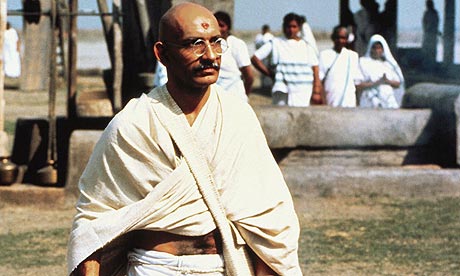 After seeing Les Miserables I realized something, some movies are just too long, and you need a break. The stage version of Les Miserables is 2 hours and 50 minutes, with a 15 minute intermission. The film versions is 2 hours and 36 minutes, no intermission, but there are almost 20 minutes of commercials and previews prior to the film. While there have been longer films Titanic, and Avatar, without the intermission, the big question on my mind at the moment is should films have an intermissions again?
After seeing Les Miserables I realized something, some movies are just too long, and you need a break. The stage version of Les Miserables is 2 hours and 50 minutes, with a 15 minute intermission. The film versions is 2 hours and 36 minutes, no intermission, but there are almost 20 minutes of commercials and previews prior to the film. While there have been longer films Titanic, and Avatar, without the intermission, the big question on my mind at the moment is should films have an intermissions again?Throughout the early history of film there have been numerous movies, which had intermissions to break up the length and emotional impact of the film. The most notable films with intermissions were:
- The Birth of a Nation (1915)
- Gone with the Wind (1939)
- Fantasia (1940)
- Ben-Hur (1959)
- Spartacus (1960)
- Lawrence of Arabia (1962)
- It's a Mad, Mad, Mad, Mad World (1963)
- Doctor Zhivago (1965)
- 2001: A Space Odyssey (1968)
- Monty Python And The Holy Grail (1974)
The last film to have an intermission was Gandhi (1982), 30 years ago. There are obviously several reasons the intermission disappeared. The first the growing Hollywood business multiplex model. Throughout the early years many movie theatres were single theatre, and now there are up to 18 different theatres in one movie complex. Now that movies have elongated things even more by adding more commercials has made the time spent in those seats even longer. Can theatres afford to lose time to show more movies? No.
One of the other major reasons is the advancement in technology, theatres use different projects today, which would make an intermission impossible. New digital technology does not use the reels. Without the reel switch people would have to build this into their film, which could be a bit jarring to film experience.
So the intermission is gone forever, or so it appears. Both the business model, and newer technology make this old tradition a thing of the past. In looking at, and researching more about this tradition Peter Hartlaub of the San Francisco Chronicle wrote a great article entitled "Movie theatre intermissions: Gone but not forgotten." The article cites a battle almost between the theatre and film studios, he stated that in talking with theatre owners they would love to bring back the intermission because "they make their money in concessions" and intermissions would lead to more snack buying. Hartlaub also stated that the multiplexes have contracts with film companies saying that the intermission is gone so they have more showings, and so they can make more money.
Hartlaub's perspective on the growing length of films is a valid point of view. Within the last month there have been at least three major studio films longer than 2 hour an minute average, The Hobbit: An Uxepected Journey (2 hours and 49 minutes), Django Unchained (2 hours and 48 minutes, and Les Miserables (2 hours and 36 minutes). Audiences still show up, each films box office gross on a domestic, and foreign level has performed incredibly well. There have been greater rumblings with movie goers about the length of films more and more. Les Miserables has received the biggest complaints most recently. Does length matter, or does this complaint come with the quality of the film?
The answer may be both. I think fans would appreciate the time to re-fill their popcorn buckets, stretch their legs, go to the bathroom, and not miss any of the movie. As a regular audience member I hate leaving my seat in the middle of the film. I want to enjoy every moment without having to feel I have to run in and out of the theatre, or sneak past people's legs. I also think fans are apt to get more antsy when the enjoy the film less. Within the stage version of Les Miserable I remember the emotional impact at the end of Act 1 keeping me on the edge of my seat and ready finish their journey with the characters in Act 2. The film version of Les Miserables could have benefited from (it could have benefited by being better as well).
I think I can say with great certainty that Gandhi will remain the last film to have an intermission. Film studios are not going to change their mind about this noble theatrical tradition. I myself am not old enough to have ever seen a movie with this intermission, but I think re-visiting this would be interesting. As I go to see Django this weekend I will test the quality theory even further, ask other friends their own thoughts, and challenge film studios to think more about the film goer, and their own movie experience.
1 comment:
Even the ten commandments starring charlton Heston had intermission. Yes. I think intermissions should be brought back. At lest it gives us time to relax and digest the first half of the movie.
Post a Comment